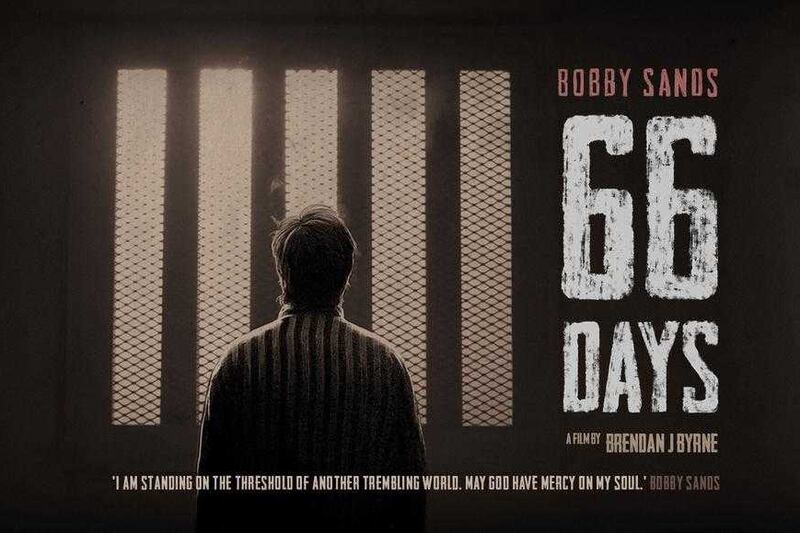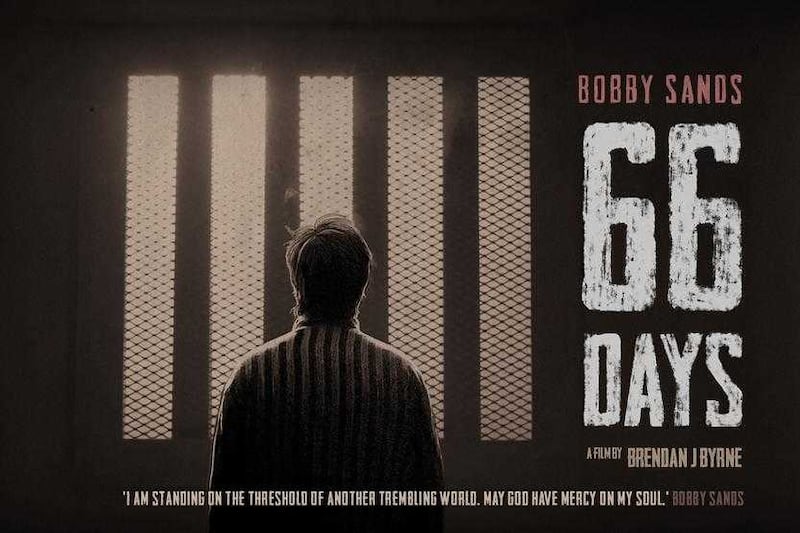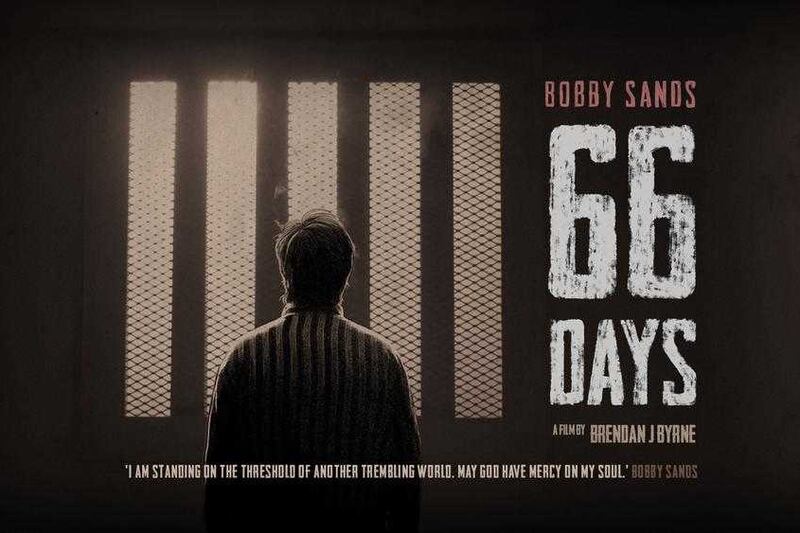So Donald Trump wants a wall built between Mexico and the US to stop illegal immigrants exploiting the present status quo position so they can gain the rewards of working in the US. Personally I see nothing wrong with this.
Legal immigration has been an accepted global necessity for centuries. Illegal or unnecessary immigration not only destroys the economy of any country but benefits the super rich and the layabout, that wants the working-class to pay for their chosen indolent lifestyle.
So I say good luck to Mr Donald Trump. May he be the next president of the US.
HARRY STEPHENSON
Kircubbin, Co Down
Trevor Ringland might learn something by watching 66 Days
Trevor Ringland, a man with very fixed unionist views, clearly does not like republicans or republicanism. As a unionist he is pro-monarchy and anti-republican. That’s his choice, which limits greatly his understanding of the world. He describes republicanism as a ‘flawed ideology.’ And suggests that the 10 men died for ‘a flawed ideology’.
Mr Ringland began his letter – ‘Hunger strikes sadly a recurring theme of Irish republicanism’ (August 29) – by stating “I probably won’t watch 66 Days…” Such a negative approach to begin with suggests that he is not open to learning and discovering the mind of republicans. He goes on to condemn the hunger-strikers for ‘taking their own lives for a political cause’.
The use of hunger strike as a weapon to obtain justice has a long history in Ireland and indeed in other countries like India where it was used by Mahatma Gandhi. In Ireland it was used as a means of protesting against injustice in Celtic times and was known as troscadh (fasting on or against a person) and cealachan (achieving justice by starvation).
It is important to put the hunger strike in context. In 1976 the British Labour government introduced a new policy of criminalisation. From then onwards republican prisoners sentenced would be required to wear prison uniform and conform to new prison rules. When the prisoners refused to conform to this new regime they went on a protest of wrapping themselves in a blanket and refusing to be forcibly taken to the toilets.
In August 1978, Cardinal Tomás O’Fiaich visited the H Blocks in Long Kesh prison to see the situation for himself. Afterwards he stated: “I was shocked by the inhuman conditions prevailing in H Blocks 3, 4, and 5, where over 300 prisoners are incarcerated. One would hardly allow an animal to remain in such conditions, let alone a human being…The stench and filth in some of the cells, with the remains of rotten food and human excreta around the walls, was almost unbearable.
The nearest approach to it that I have seen was the spectacle of hundreds of homeless people living in sewer pipes in the slums of Calcutta. From talking to them it is evident that they intend to continue their protest indefinitely and it seems they prefer to face death rather than submit to being classed as criminals. Anyone with the least knowledge of Irish history knows how deeply rooted this attitude is in our country’s past.”
The British condemned the cardinal’s remarks. The cardinal was ridiculed in the British press, where it was often noted that he came from Crossmaglen in south Armagh.
The refusal by Margaret Thatcher and the British government to respond to the cardinal’s appeal for justice and mercy led to the first hunger-strike in 1980. When it ended with the promise from the British to introduce reforms a second hunger strike led by Bobby Sands began. In his diary he outlined the reasons why they resorted to the second hunger strike in 1981. From his point of view to accept the new regime would have been to criminalise the entire struggle for Irish freedom. The protesting prisoners hoped that the British would be forced to change their attitude as a result of world opinion and introduce a humane regime in Long Kesh summarised in the five demands.
The prisoners on the fast were acting in solidarity and in the cause of justice and human dignity. Mr Ringland, being a monarchist, would not understand. I think Mr Ringland should go to see 66 Days. He might learn something and he might learn to be a little more respectful of others who differ from him politically.
Fr JOE McVEIGH
Co Fermanagh
Price tag placed upon Irish history and identity
The reaction to the decision by Oisin Glenariffe to take down their club gates because they bear the name of two IRA volunteers has brought mixed reaction within the community. While some can see the benefit of the action many, like myself, are very worried by the precedent it will set within the Ulster GAA.
The GAA, while never a republican organisation, has always had strong ties to the nationalist/republican struggle. Many of the founder members, many who contributed heavily to the games have been immortalised by our members for the role they played in our organisation. Many were republican activists and heroes.
The decision to remove the gates for a financial incentive is tantamount to bribing our people to gentrify our culture.
This is cultural sterilisation at the behest of British interest in Ireland. The cultural vibrancy of the GAA is a threat to British interests here and it runs anathema to the current attempts of modern Ulsterisation, ie northern Irish identity.
Removing seditious elements of our past is an attempt to remove the potency of our history, not an attempt to make it acceptable to a people who do not identify as Irish and have no intention to embrace our games or our language, cross-community or otherwise.
The precedent has now been set, the price tag has been placed upon our history and our identity.
PADRAIG Og O'DEORAIN
Belfast BT15
Saving open spaces
I want to commend Frances Maguire,‘Loves Falls Park’ (August 15) and to express my admiration for the Love Falls Park (LFP) environmental group. To my shame I was hitherto unaware of its existence.
However, I also want to argue that we are not quite comparing like with like here. As Frances acknowledges – while any mutilation of the Falls Park is not yet a ‘done deal’, sadly Musgrave Park is very much a fait accompli. More fundamentally, though, with Musgrave being considerably smaller in area its destruction is, therefore, proportionately more shameful. Moreover, the visibility of Musgrave’s damage being so explicit serves merely to publicise it.
Surely, though, the greatest contrast would be in the very nature of the agitation for change to the two parks. LFP can, of course, outline the specifics of the Falls Park situation more eloquently than I. Whereas, in the case of Musgrave, it is patently obvious an already admirable GAA facility was deemed insufficient for a newly fashionable Gaelic club singularly placed financially and with the clout to engineer such a self-serving enterprise.
It is yet a cruel irony that ‘the city’ – that’s you and me – largely funded (perhaps superfluously) the desecration of Musgrave Park.
LARRY McDONALD
Belfast BT9
Brexit will mean great Christmas
The leader of the SDLP, Colum Eastwood MLA, makes a fair point when he suggests that the secretary of state for exiting the European Union, Rt Hon David Davis MP, should have met members of the business community from border areas as well as from Belfast. However, Mr Eastwood may be unaware that the prospect of Brexit has already had a favourable impact on our border towns such as Newry and Armagh and presumably Enniskillen, Strabane and Derry.
At the Buttercrane Shopping Centre in Newry City management has confirmed that the percentage of southern cars in their car park has already increased from 10 per cent before the referendum to 18 per cent now.
Brexit will mean a great Christmas for the retail centres in our border towns.
LORD KILCLOONEY
Mullinure, Co Armagh
Is it really that simple?
Regarding John Rooney’s letter, ‘The true reality of creation is always transcendental’ (August 26) – I wonder if it is really that simple.
BOBBY MCCAMBRIDGE
Belfast BT9








